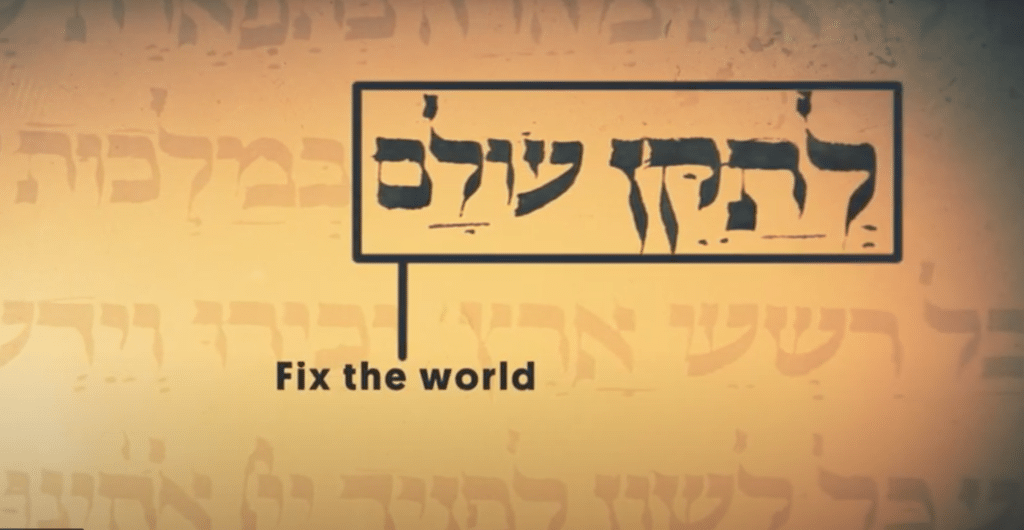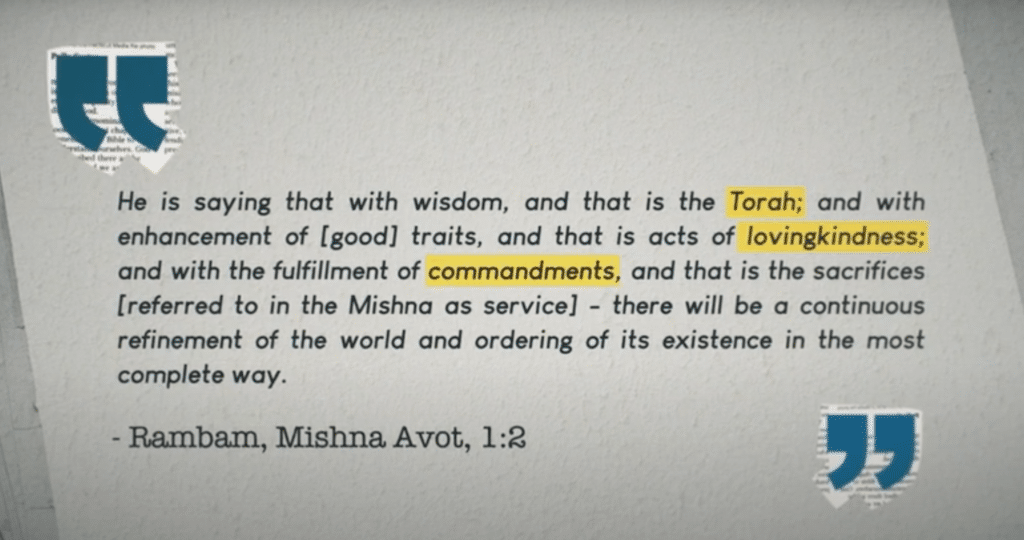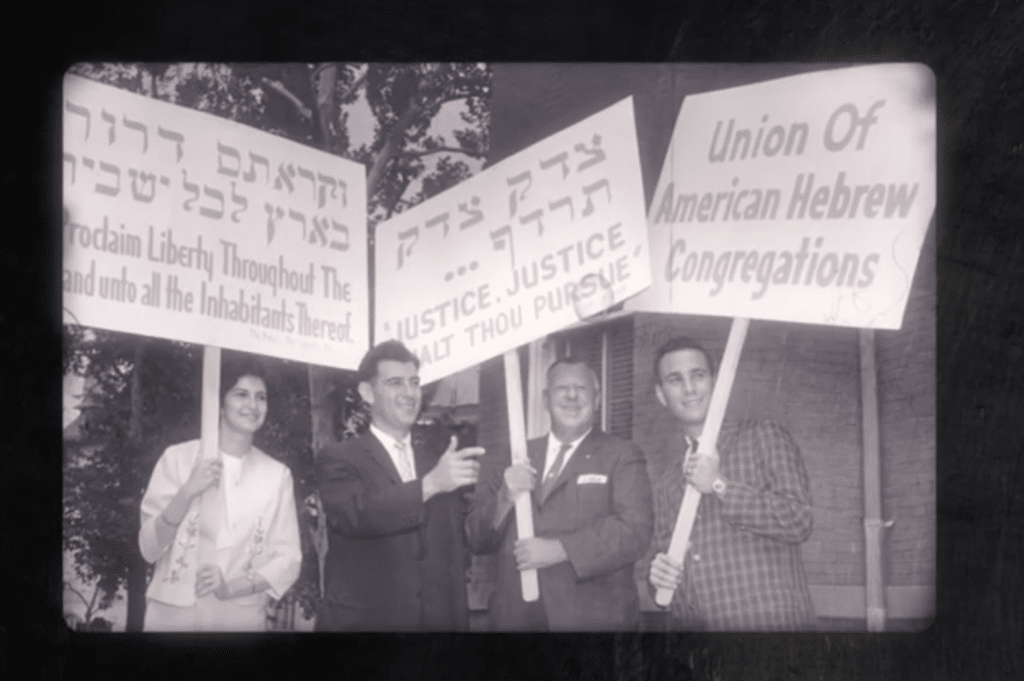
Hanukkah. Shtisel. The Western Wall.
In popular culture there are some words that immediately make you think: “Oh! That’s Judaism!”
Among those keywords there is an old phrase that is getting a lot of new “yeah that’s Judaism” buzz: tikkun olam.
Tikkun olam literally means fixing the world. But nowadays it is more often translated as Jewish social justice.
Earth Day often focuses on how we can literally practice caring for the earth through environmental efforts. But, as one blogger said it best: “When we consider Earth Day through the lens of tikkun olam, we begin to notice that Earth Day is also about how we support and take care of each other.”
This Earth Day, let’s unpack what’s so Jewish about the idea of repairing the world. When did people decide it was broken? And what healing the world actually looks like in practice.
Where did Tikkun Olam come from?
The phrase tikkun olam does not show up in the Five Books of Moses or anywhere in the Hebrew Bible.
Instead, it makes its first appearance in early rabbinic literature. At that time, Rabbis were fine-tuning laws in order to understand how to “repair the world” for the purpose of “tikkun olam.” But it was not yet considered some great Jewish principle.
Around the year 300 CE, the term tikkun olam appeared for the first time in the Rosh Hashana (new year) service. Within a prayer called the “Aleinu,” lies the phrase “to fix the world (letaken olam) under God’s authority.”

“Under God’s authority” is understood by Orthodox Jews to mean the Messianic Era, when the world will be healed and perfected.
Seven hundred years later, the great rabbi and commentator, Maimonides, picked up the phrase too.
“When you gain wisdom by studying Torah, develop character by doing acts of kindness, and when you observe the mitzvot (commandments) you bring tikkun olam,” he said.

This was understood to mean that when you practice Tikkun Olam, you bring God closer to the Jewish people.
Kabbalistic Approach
Jewish mystics, known as Kabbalists, came along and mixed the ideas of Messianism and Jewish Observance together. They also added a twist.
Kabbalists believe the world is broken, and contains evil. According to them, in the moment of creation, divine sparks broke out and fell into the crude material world. This, in turn, unbalanced the universe.
By doing good deeds and observing the commandments, they believe Jewish people can send those sparks back to heaven, restore balance to the universe, and bring the Messianic Era.
Reform Movement
In the 1960’s, when the Civil Rights movement took center stage in the United States, it was the Reform movement of Judaism that took the phrase tikkun olam and turned it into “Jewish social action.” Reform Judaism focused on the key Jewish ideas of charitable works, acts of loving-kindness, and justice.

This made Tikkun Olam a more widely known phrase within the greater Jewish community, but it also caused some controversy.
There are those today who worry that the progressive approach to tikkun olam is assimilationist. Doing good deeds is fantastic, they say, but if it replaces Jewish observance and Torah study, then it is devoid of Judaism.
Progressives counter that for those Jews who don’t resonate with the ritual aspects of Judaism, tikkun olam gives them a way to engage and take pride in their heritage. And more to the point, tikkun olam is a central tenet of Judaism. It’s almost the point of everything Jews do!
Tikkun Olam Today
Today, tikkun olam is catching on like wildfire. In Israel, there are over 42,000 registered non-profit charitable organizations. In the United States, that number is many times higher. Tikkun olam today is, in fact, a multi-billion dollar charitable industry.
There are also Jewish folks and communities around the world doing Tikkun Olam in their own ways.
tikkun olam! my affirmation for today and every day. https://t.co/hbw1wMvSlG
— Elly Belle, notably not a woman 🔮 (@literElly) April 20, 2021
So what really is tikkun olam? Ultimately, tikkun olam has roots in many different Jewish theological arguments, and can mean different things to different people and communities.
For some, the motivation is to bring the Messianic Era. For others, it’s to heal the world by working closely with other communities. For some, it needs the ritual acts of Judaism and Torah study for it to be Jewish. For others, simply living the ethical values of helping God fix a broken world makes it innately Jewish.
Either way, when the Jewish community engages in this project, we call it simply: Tikkun Olam — Jewish people working hard to fix a very broken world.
It is for this reason that tikkun olam is, for many today, a fundamental, essential, and perhaps the most important element of Judaism.
